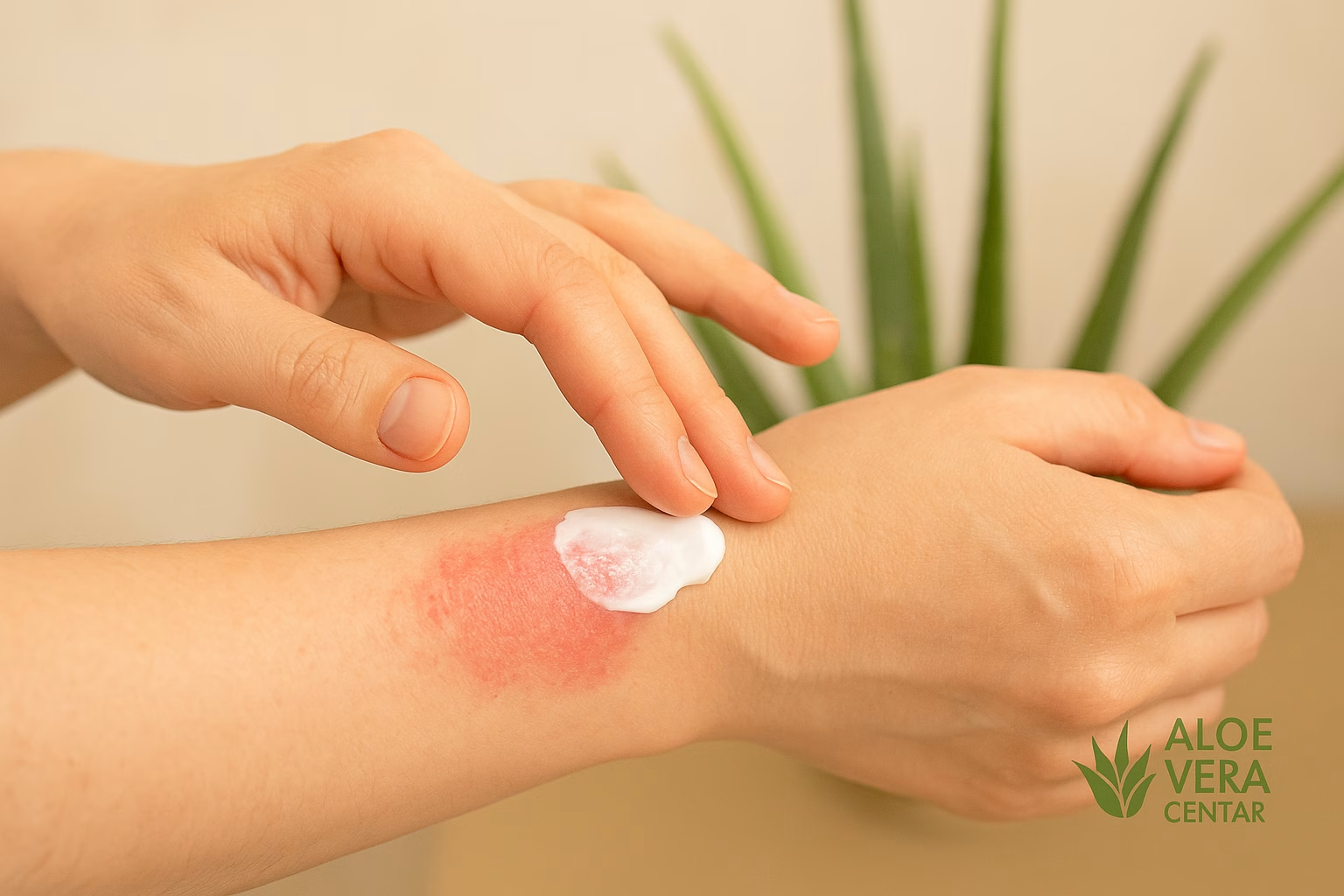
Eczema and Dermatitis: Probiotics and Zinc for Calm Skin
Eczema and Dermatitis: What Role Do Probiotics and Zinc Play?
Eczema and dermatitis can turn your skin into a “battlefield” of redness, itching, and uncomfortable tightness. If you feel like every new cosmetic product is a Russian roulette, you’re not alone. We reveal how probiotics and zinc—two often underestimated allies—can help you fall in love with your skin again and restore its natural balance.
What Exactly are Eczema and Dermatitis?
The term “dermatitis” encompasses various inflammatory skin processes; the most common are atopic, seborrheic, and contact dermatitis. Although they differ in cause, they share redness, dryness, and sometimes cracks through which the skin literally “loses” moisture. In chronic conditions, it’s important to understand that the skin barrier is no longer fully functional—and this is where the vicious cycle begins: a damaged barrier allows allergens to pass through, intensifying inflammation.
Skin Microbiome – the Hidden Ecosystem that Decides whether Redness Will Occur
You might wonder why eczema often “awakens” during stressful periods? Here’s the thing: stress disrupts the balance of good and bad bacteria on the skin and in the gut. When opportunistic species dominate, the immune system overreacts—the result is inflammation visible to the naked eye.
But that’s not all… The gut-skin axis means that what we eat (or don’t eat) directly affects the condition of the skin. A 2023 study showed that targeted addition of probiotic strains can lower the SCORAD index, the official measure of the severity of atopic dermatitis.
Probiotics: a Small Army Defending your Skin
Probiotics aren’t reserved only for a “sensitive stomach”. Certain Lactobacillus and Bifidobacterium strains reduce levels of inflammatory cytokines and strengthen the skin barrier from within. Topical probiotics further confirm that local application can relieve itching and flaking of the skin.
Looking for a practical solution? Forever Active Pro B delivers six clinically tested strains in a gastro-resistant capsule that dissolves exactly where needed—in the gut. This way, microbes arrive “alive and well” at their destination and specifically reduce gut permeability, which indirectly calms the skin.
Still unsure which strains to choose? Use our AI advisor and get personalized recommendations in a few clicks.
Zinc: the Mineral that Reduces Redness and Speeds up Regeneration
Sounds too good to be true? Keep reading… Zinc is a cofactor for more than 300 enzymes, including those responsible for skin healing. Chronic deficiency prolongs the inflammatory phase and slows recovery. A review published in 2023 emphasizes that topical and oral zinc reduce the number of inflammatory lesions in eczematous skin.zinc review
In practice, a combination of zinc, vitamin C, and biotin can strengthen dry, cracked areas of skin. We’ve already written on the blog about boosting immunity with zinc, so be sure to check it out if you want to know how many milligrams to take daily.
Eczema and Dermatitis Synergy: Probiotics + Zinc + Aloe
When zinc fortifies the barrier and probiotics calm the immune “fire”, we make room for a third player—aloe vera. Aloe barbadensis is rich in polysaccharide acemannan, which further hydrates and cools irritated epidermis. For local relief, many of our readers swear by Aloe Propolis Creme, as it combines the anti-inflammatory power of propolis and the soothing gel of aloe.
How does it look in practice? Try the routine:
- Morning: gentle syndet, serum with zinc PCA, light moisturizing cream
- Afternoon: probiotic capsule with a meal
- Evening: thin layer of Aloe Propolis Creme on affected areas
Want to save? Get 15% off when ordering from the webshop and complete your home “first aid kit” for skin.
Additional Tips for Calm Skin
– Choose cotton clothing and rinse detergent twice.
– Avoid long, hot showers that further dry out the epidermis.
– Include fatty fish rich in omega-3 fatty acids and fermented foods in your diet.
– Need more ideas? Check out the article on aloe and atopic dermatitis.
Note: This article provides general informational advice and does not replace professional medical advice. For diagnosis or therapy, consult a dermatologist.
Frequently asked questions
How Quickly Can I Expect Improvement after Introducing Probiotics?
Most studies report visible changes within 6-8 weeks of regular intake, but individual differences exist.
Is Zinc Safe for Long-Term Use?
Up to 15 mg of elemental zinc per day is considered safe for adults. Take higher doses only under expert supervision.
Can Probiotics Worsen Symptoms at the Beginning?
A small number of people experience temporary bloating. Symptoms usually disappear after a few days when the gut microbiome adjusts.
What is the Best Form of Zinc for Skin—Oral or Topical?
Ideally, combine both: oral zinc works systemically, while topical zinc addresses local inflammation.
Eczema and Dermatitis – Conclusion
We’ve debunked the biggest myths and shown that probiotics and zinc can be game-changers in the skincare routine for eczema-prone skin. It’s crucial to consistently monitor progress and adjust doses. Ready to take the first step? Try the recommended products, apply the tips from the text, and let your skin shine again.
Additional Resources for Supporting Skin and Digestive Health
If you’re interested in further optimizing your diet for healthier skin, be sure to read our detailed guide on how probiotics and healthy diets go hand in hand. This article will provide you with deeper insights into the importance of dietary habits that support gut flora and indirectly reduce inflammatory processes on the skin.
For specific probiotic support, we’ve detailed the product Forever Active Pro B, which contains clinically tested probiotic strains that can help restore microbiome balance and improve symptoms like redness and itching.
If you want to further explore how aloe vera can help with sensitive skin and dermatitis issues, we recommend reading our article Sensitive skin and atopic dermatitis: how aloe vera helps. Here you’ll find concrete advice on how aloe vera can soothe inflamed skin areas and restore needed moisture.








